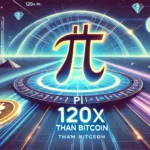
- Hong Kong is mulling tokenization with blockchain at the frontline.
- Legislators in the region are pushing for more blockchain integration into the economy.
Hong Kong is delving into a digitized economy with a recent move in gold tokenization and cross-border digital payments. Through these initiatives, Hong Kong seeks to benefit from traditional finance’s stability while enjoying blockchain’s efficiency.
Hong Kong Eyeing Gold Tokenization
According to reports from local news media, Hong Kong is considering promoting the tokenization of gold. Paul Chan, the Secretary for Financial Services, gave the details during the recent Consensus Conference held in Hong Kong. This is the first time in five years that the event has occurred outside the United States.
The tokenized gold will combine the characteristics of physical gold with blockchain technology. The revamped gold represents a financial game-changer, providing investors with greater flexibility and enhanced security. Tokenizing gold could also help increase liquidity and accessibility.
Also, Hong Kong seeks to promote digital finance so that it can participate in the real economy. Accordingly, Hong Kong is now moving to support cross-border payments in the region. Besides these trends, Hong Kong plans to integrate Artificial Intelligence (AI) with blockchain and Web3 technologies to strengthen the development of digital infrastructure.
Michael Lau, Chairman of Consensus Hong Kong, expressed confidence that Hong Kong has broad development prospects in digital assets and Web3. He also commended the region for its clear regulatory framework and a large pool of talent, which is attracting blockchain initiatives into the region.
The tokenization and cross-border payment plans follow Hong Kong’s rising involvement in blockchain initiatives. Hong Kong constantly makes it clear that digital assets are here to stay in its financial system.
As CNF outlined in a recent blog post, Hong Kong now accepts Bitcoin and Ethereum as proof of assets for investment immigration applications. This policy makes it easier for crypto investors to establish themselves in the City.
Furthermore, as CNF noted earlier, a Hong Kong legislator is pushing for an accelerated study of Bitcoin as a strategic reserve. Hong Kong Legislative Council member Johnny Ng Chong said the initiative would strengthen the city’s position in the digital economy.
Why Tokenization is Growing
Essentially, tokenization converts Real-World Assets (RWAs) into tokens stored on a blockchain, making them more liquid and transparent, with faster settlement. These RWAs encompass commodities, bonds, real estate, mutual funds, and stocks.
Although these assets are essential to traditional finance, they are characterized by a lack of liquidity and high costs due to the intervention of a third party. This is where tokenization comes in, converting ownership rights into tokens, thus opening up the market to investors.
As reviewed in our recent publication, tokenized treasuries are on the rise. For instance, firms like Archax have utilized Ripple’s XRP Ledger (XRPL) to boost their liquidity. Some assets are more secure and can provide consistent returns than other investment types.






